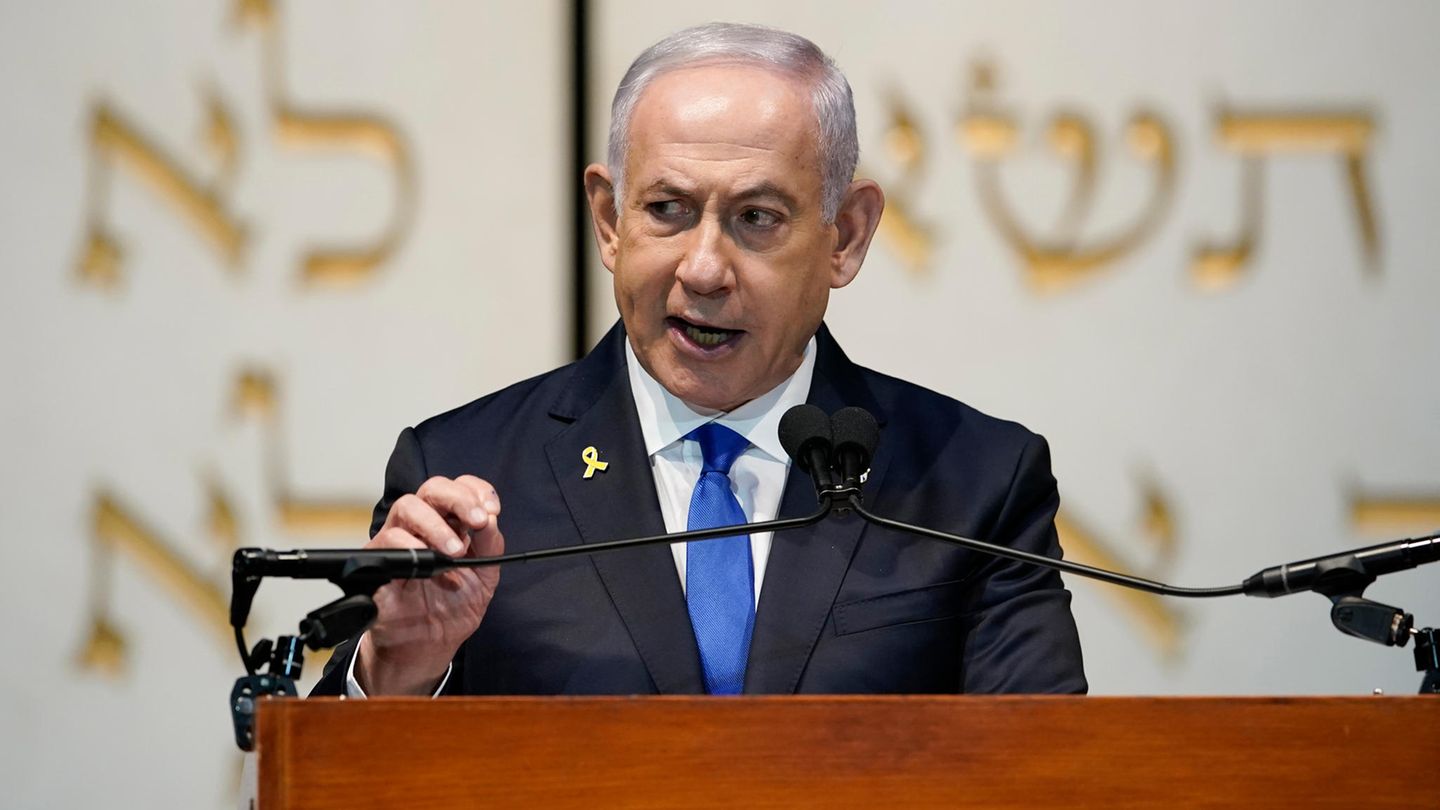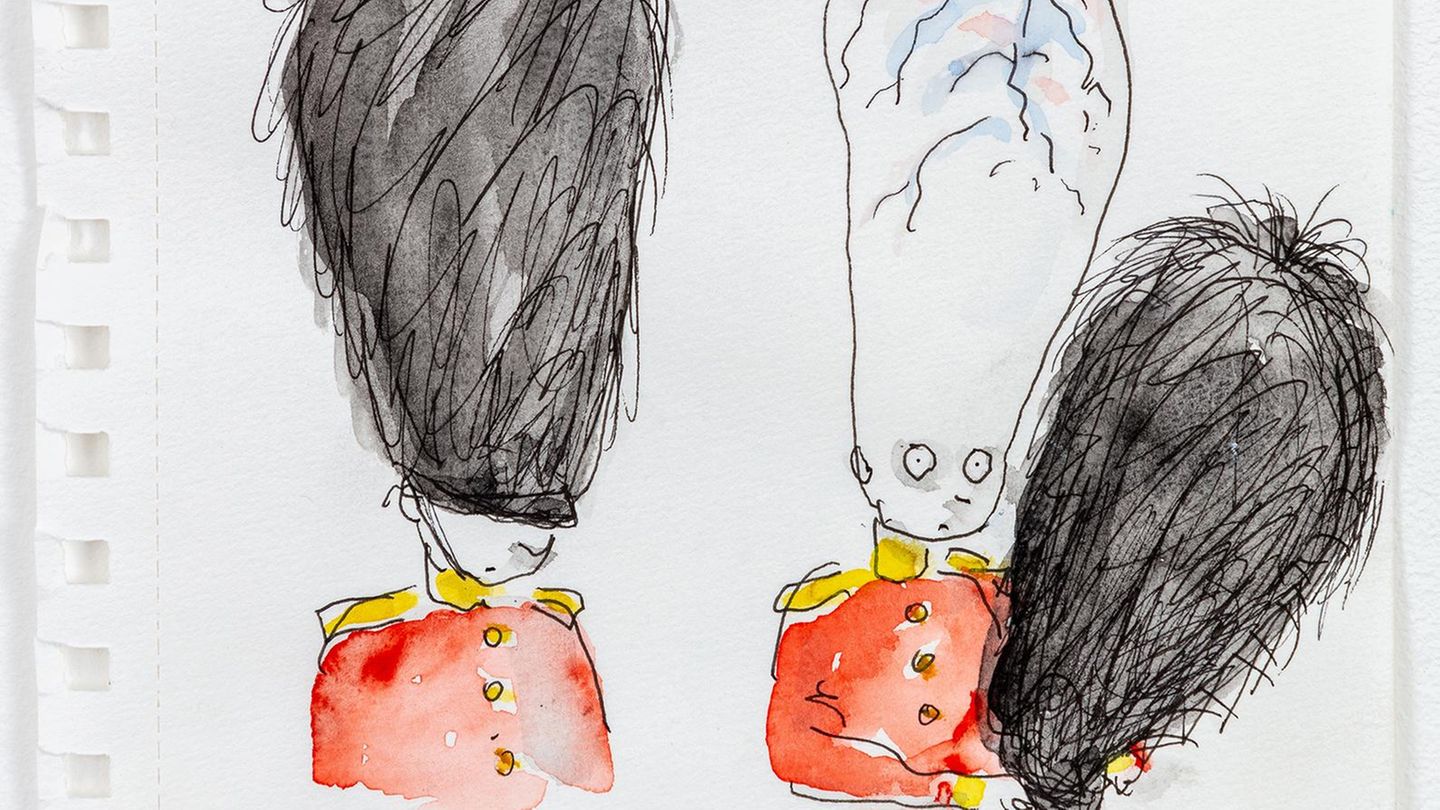The fighting in the Gaza Strip continues, and negotiations on a ceasefire are at a dead end. The USA, as an ally of Israel, is keeping two aircraft carriers in the region.
The situation in the Middle East has stabilized after the fierce military clash between the Lebanese Hezbollah militia and the Israeli army, but remains tense. The US Department of Defense instructed the US military to leave two aircraft carriers and their escort ships in the region. Late in the evening, according to the Israeli army, Hamas, an ally of Hezbollah, fired a rocket from the south of the Gaza Strip in the direction of Tel Aviv, but it landed in open territory south of the Israeli coastal metropolis.
According to paramedics, a woman injured herself when she rushed to a shelter. Talks about a ceasefire in the Egyptian capital Cairo had previously failed to produce any results. The Israeli delegation left after just a few hours, according to sources at Cairo airport. Qatar’s Emir Tamim bin Hamad Al Thani and the Hamas representatives also left the city. Egyptian security sources reported that there was a “difficult stalemate” to the German Press Agency.
Israel-Gaza war: efforts to avoid further escalations
The USA, Qatar and Egypt also want to use a ceasefire and the release of hostages to ensure that there is no conflagration in the region. They are mediating in the Gaza war between Israel and Hamas, which has been going on for almost eleven months, as both sides are refusing to hold direct talks with each other. After the large-scale rocket attack by Hezbollah on Israel and the counterattacks by the Israeli military in Lebanon, the regional military powers have signaled their desire to avoid a spiral that could lead to a larger conflict in the Middle East, reported the Wall Street Journal.
The head of Hezbollah, which is allied with Iran, Hassan Nasrallah, struck a comparatively cautious tone following the attack: “Our aim from the beginning was not to attack civilians, but military targets.” In his typically sharp rhetoric against Israel, Nasrallah also said that attacks by Iran and the Houthi militia in Yemen on Israel were still to come. Hezbollah also reserved the option of further attacks. However, the reaction to the killing of its military commander Fuad Shukr by Israel at the end of July has ended for now – and Lebanon can “breathe a sigh of relief”.
Netanyahu: “Not the end of the story”
Before the attack early Sunday morning, Israel’s army said it had recognized an “imminent threat to the citizens of the State of Israel” and had then begun attacking numerous targets in southern Lebanon. The army had destroyed thousands of rockets aimed at northern Israel and “removed many other threats,” said Israeli Prime Minister Benjamin Netanyahu. But this was “not the end of the story.”
Hezbollah does not want a major war, Danny Citrinowicz of the Institute for National Security Studies in Tel Aviv told the Wall Street Journal. Mohanad Hage Ali, deputy director for research at the Malcolm H. Kerr Carnegie Middle East Center in Beirut, told the newspaper that the limited losses on the Israeli side made it clear that Hezbollah wanted to keep the conflict within limits.
According to military sources, a soldier was killed in Israel. According to media reports, the 21-year-old was hit by falling parts of an Israeli anti-aircraft missile on a naval boat. Three people died in Lebanon.
The Houthis praised Hezbollah’s “great and courageous attack”. Hamas spoke of a “slap in the face” of the Israeli government. A possible second phase of retaliation will depend largely on the outcome of the Gaza negotiations.
Threatening escalation
Who is on whose side in the Middle East?
USA wants to continue to support Israel
In a phone call with his Israeli counterpart Joav Galant, US Defense Secretary Lloyd Austin reaffirmed Israel’s right to defend itself, the Pentagon said. At the same time, he assured Galant of the US’s “iron resolve” to support Israel in fending off threats from Iran and its regional partners.
Meanwhile, US Chief of Staff Charles Brown arrived in Israel in the evening. The Israeli military told me that he will meet with Israeli Chief of Staff Herzi Halevi, among others. Brown’s talks will focus on security and strategic issues in light of the threats in the Middle East. The Israeli military will continue to deepen relations with the US armed forces in order to strengthen regional stability and coordination between the two armed forces.
The USA is Israel’s most important ally. They recently deployed additional warships, aircraft and a missile-equipped submarine to the region – probably also to be able to support Israel in the event of an attack by forces in Lebanon or Iran. In addition to the aircraft carrier “USS Theodore Roosevelt” that was already stationed there, the aircraft carrier “USS Abraham Lincoln” and its escort ships have been in the region since last week.
Polio vaccinations in Gaza
Meanwhile, following warnings of a massive polio outbreak, vaccines against the disease have been brought to the embattled Gaza Strip. Vaccines for 1.25 million people have been transported to the coastal strip via the Kerem Shalom border crossing, said Cogat, the Israeli agency responsible for Palestinian affairs.
“In the coming days, international and local medical teams will vaccinate previously unvaccinated children against polio at various locations in the Gaza Strip,” the statement said. UN representatives had called for a ceasefire to allow polio vaccinations for hundreds of thousands of children in the war zone.
The head of the World Health Organization (WHO), Tedros Adhanom Ghebreyesus, expressed his great concern on Friday at X about the case of a ten-month-old baby. The child from Deir al-Balah in central Gaza was the first confirmed diagnosis of polio in the Gaza Strip in 25 years. In view of the high risk of infection, the Palestinian Ministry of Health, the WHO and the UN Children’s Fund Unicef are aiming for two rounds of vaccinations in the next few weeks.
Source: Stern
I have been working in the news industry for over 6 years, first as a reporter and now as an editor. I have covered politics extensively, and my work has appeared in major newspapers and online news outlets around the world. In addition to my writing, I also contribute regularly to 24 Hours World.




